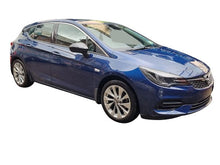
Cultural Trends Shaping Your Next Car Purchase
Frequently Asked Questions
1. What cultural trends are influencing automotive choices today?
2. How does sustainability affect car purchases?
3. What role does technology play in consumer car preferences?
4. Why are compact and fuel-efficient vehicles becoming popular?
5. How does social media influence automotive purchasing decisions?
The automotive industry is constantly evolving, influenced not only by technological advancements but also by cultural trends that significantly sway consumer choices. Understanding these trends can help you grasp what consumers look for when buying a vehicle, ranging from eco-friendliness to the embrace of technology. As a car owner or enthusiast, being aware of these cultural shifts can empower you in your next vehicle-related decision. In this article, we’ll dive into the cultural trends affecting automotive choices today and how they can guide your purchasing decisions.
Emphasis on Sustainability
One of the most noticeable cultural trends affecting car purchases is the growing emphasis on sustainability. As environmental awareness increases, consumers are becoming more conscious of the ecological impact of their vehicles.
Shift Towards Eco-Friendly Vehicles
With climate change at the forefront of global discussions, many individuals are shifting towards electric vehicles (EVs) or hybrids. Cars that promise lower emissions and better fuel efficiency are becoming essential for eco-conscious consumers. This trend is mirrored in various automotive advertising strategies, which prioritize sustainability as a key selling point.
Carpooling and Shared Mobility
In parallel with the electric vehicle trend, shared mobility options such as carpooling and ride-sharing have gained traction. According to recent studies, many consumers now see ownership of a vehicle as less of a necessity. Instead, they question whether they really need a car or if opting for shared alternatives is a better choice. This shift reflects a broader cultural move towards minimizing waste and reducing individual consumption.
Technology Integration
The rapid advancement in technology impacts nearly every aspect of our lives, and the automotive sector is no exception. Modern consumers expect their vehicles to be equipped with the latest technology features.
Smart Features and Connectivity
Today’s consumers often opt for cars equipped with advanced tech features such as GPS navigation, connectivity with smartphones, and advanced safety systems. Features such as lane assist, adaptive cruise control, and collision warning systems have become widely popular as they enhance safety and provide a more comfortable driving experience.
Autonomous Vehicles
The interest surrounding autonomous vehicles also demonstrates how technological advancements are reshaping automotive choices. Though still in the evolving phase, many consumers are curious about having self-driving capabilities. Automotive companies are investing heavily in research and development to make fully autonomous cars a reality, hence influencing consumer expectations and desires.
Urbanization and Changing Demographics
The trend of urbanization and evolving demographics also play a significant role in shaping automotive choices. As more people flock to urban areas, vehicles’ practicality often takes precedence over size and power.
Compact and Fuel-Efficient Vehicles
In cities, parking can be a hassle, and traffic congestion is common. As a result, compact cars that offer fuel efficiency while occupying less space have surged in popularity. These vehicles cater to the needs of urban dwellers, appealing to their desire for convenience and functionality.
Young Consumers Driving Change
Furthermore, millennials and Generation Z are evolving car culture with their preferences and values. Having grown up with both global issues and immediate access to information at their fingertips, these young consumers actively seek out vehicles that reflect their personal values, such as sustainability and technology. These groups prioritize experiences over ownership, making mobility solutions that offer flexibility, such as subscriptions and rentals, an essential part of automotive choices.
Safety Concerns and Family Needs
With a growing focus on safety, consumers are more aware than ever of the features that contribute to their family’s security on the road.
Family-friendly Vehicles
The demand for SUVs and crossovers has skyrocketed, as these larger vehicles provide ample space for families and come equipped with advanced safety features. Parents investing in family-friendly models consider things like child seat compatibility, passenger space, and crash test ratings when making their choices.
Safety Technologies on the Rise
Moreover, safety technology such as automatic emergency braking, pedestrian detection, and 360-degree cameras increasingly influence buying decisions. The peace of mind that comes with knowing a vehicle is designed with these safety features often takes precedence in the decision-making process.
Brand Loyalty and Personalization
In a vast automotive market filled with numerous choices, brand loyalty continues to be an essential factor in consumer purchases.
The Power of Brand Image
Many consumers are drawn to brands with a unique image or strong reputation that aligns with their values. The connection between brand identity and automotive choices underscores the importance of marketing and branding in consumers' decision-making processes.
Customization and Personalization
Furthermore, the ability to personalize a vehicle is becoming increasingly important. Many consumers appreciate the chance to customize features, colors, and accessories to reflect their own identity. This trend towards personalization represents a broader cultural shift where individual expression and uniqueness are highly valued.
Influence of Social Media and Online Opinions
Social media's role in shaping consumer choices cannot be understated. With platforms like Instagram, TikTok, and YouTube providing quick access to reviews, comparisons, and testimonials, consumers are influenced more than ever by online opinions.
Digital Engagement
Reviews from influencers and user-generated content offer valuable insights and encourage potential buyers to choose specific models. The power of social media can compel consumers to take notice of particular brands or vehicle features, influencing purchase intentions.
Online Research and Shopping
The shift to digital is facilitating a new wave of automobile shopping, where consumers conduct extensive research online before making a purchase. Dealerships are also adapting their strategies to provide better online engagement and showcase their products effectively across digital platforms.
Global Influences on Local Choices
Culture is not confined to national borders; it crosses them. Global events can significantly affect local automotive choices.
Shifts in Global Economics
Global economic conditions, such as oil prices, often influence consumer preferences. For instance, a spike in gas prices may shift consumers’ focus towards more fuel-efficient vehicles. Similarly, trade agreements can affect car availability based on tariffs and manufacturing costs.
Cultural Exchange
The exchange of ideas and trends through globalization also brings new considerations to the fore. Car designs, features, and usage adopted worldwide can inspire local consumers, further diversifying choices in the market.
Looking Ahead: The Future of Automotive Trends
As cultural trends evolve, the automotive industry must adapt and innovate continuously. The intersection of tradition and modern expectations poses exciting opportunities for consumers and manufacturers alike.
While the trends highlighted can provide guidance, it is essential for every consumer to consider their unique needs when selecting a vehicle. The ongoing cultural transformations in automotive choices will undoubtedly continue to shape the industry for years to come.
What’s in Store for Your Drive?
Understanding cultural trends shaping automotive choices is crucial for making informed decisions. By keeping in mind these evolving influences, you can navigate the complex landscape of car buying with greater confidence. Whether you prioritize sustainability, technology, safety, or brand loyalty, remember that it’s not just about the car you choose – it’s about the lifestyle you embrace with it. Take time to reflect on what matters most in your driving experience, and you’ll be sure to find the perfect vehicle that aligns with your personal values and needs.





















